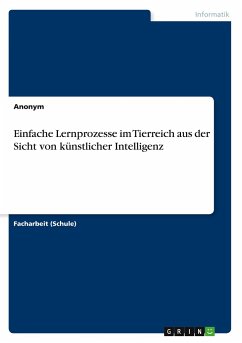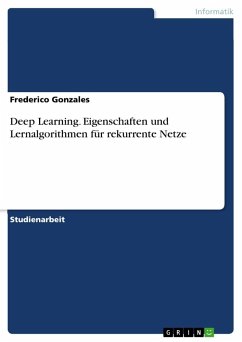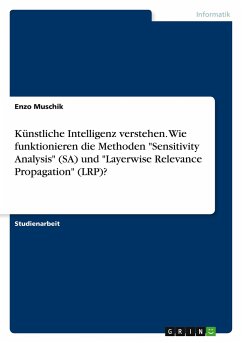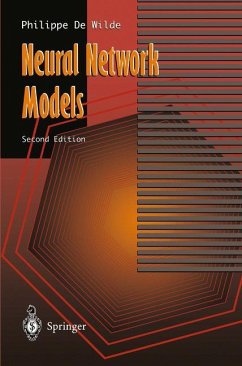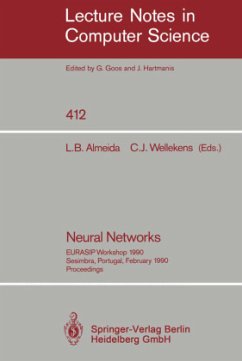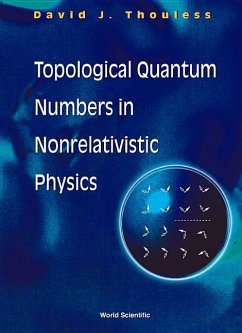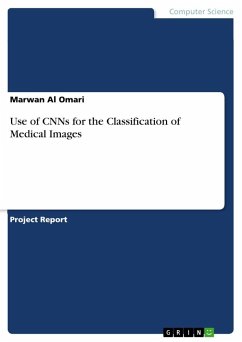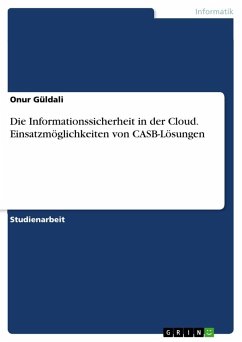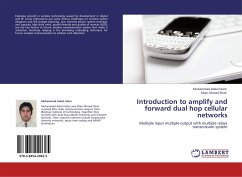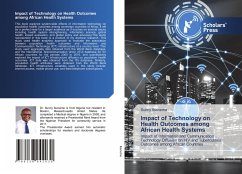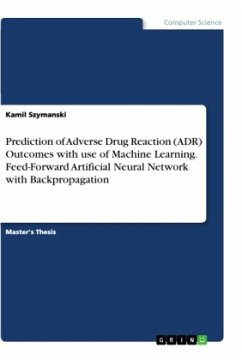
Prediction of Adverse Drug Reaction (ADR) Outcomes with use of Machine Learning. Feed-Forward Artificial Neural Network with Backpropagation
Versandkostenfrei!
Versandfertig in 1-2 Wochen
47,95 €
inkl. MwSt.

PAYBACK Punkte
0 °P sammeln!
Master's Thesis from the year 2019 in the subject Computer Sciences - Artificial Intelligence, grade: 88.2, Institute of Technology Carlow, language: English, abstract: Adverse Drug Reactions contribute to $ 7.2 billion in medical expenses annually in the United States alone. Apart from economic impact, the adverse drug reactions are one of the main causes of deaths in developed countries. An ability to predict adverse drug reaction outcomes or identify patients that are likely to experience adverse drug reactions after ingesting medicinal drug product can reduce the fatality rates and financi...
Master's Thesis from the year 2019 in the subject Computer Sciences - Artificial Intelligence, grade: 88.2, Institute of Technology Carlow, language: English, abstract: Adverse Drug Reactions contribute to $ 7.2 billion in medical expenses annually in the United States alone. Apart from economic impact, the adverse drug reactions are one of the main causes of deaths in developed countries. An ability to predict adverse drug reaction outcomes or identify patients that are likely to experience adverse drug reactions after ingesting medicinal drug product can reduce the fatality rates and financial burden associated with medical treatments of patients experiencing adverse drug reactions. To date, two studies attempted to predict adverse drug reactions with use of machine learning algorithms and Food and Drug Administration database. However, one of them did not provide sufficient accuracy scores and the other was a small-scale proof of concept study. This research has built on top of these two studies and aimed to improve predictive results and provide more specific adverse drug reaction predictive labels. Two deep, fully connected Neural Networks have been created to predict adverse drug reaction outcomes. Model 7 and the Binary Model. The model 7 was a multi-label classification algorithm that was trained to classify patients that were hospitalised, died or have been hospitalised then died. The binary model was trained to segregate the adverse drug reaction outcomes to 2 classes - hospitalisation and death. The multiclass Model-7 achieved similar performance (74 % accuracy) to standard machine learning (binary) models generated in previous studies. However, it did not achieve better performance than binary proof of concept Artificial Neural Network model built by other researchers. The binary Artificial Neural Network model created in this study, significantly outperformed other binary standard machine learning models designed in past by achieving 83 % of accuracy - 8 % higher than competitors. Nevertheless, it did not outperform the small-scale Artificial Neural Network model which scored 99% accuracy. The results of this study demonstrate that Artificial Neural Networks are better suited for binary classification problems on large scale uneven data than standard machine learning models, provided there is sufficient access to computing power. The multi-label Artificial Neural Networks also achieve satisfactory results, however a reduction in model performance must be acknowledged due to nature of the multiclass output.



